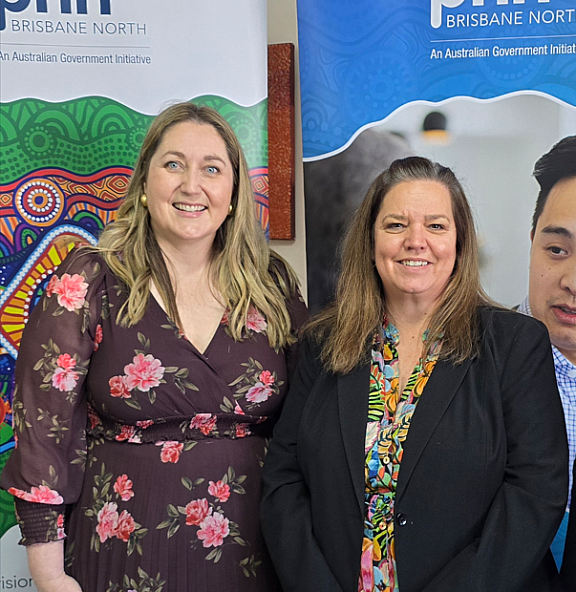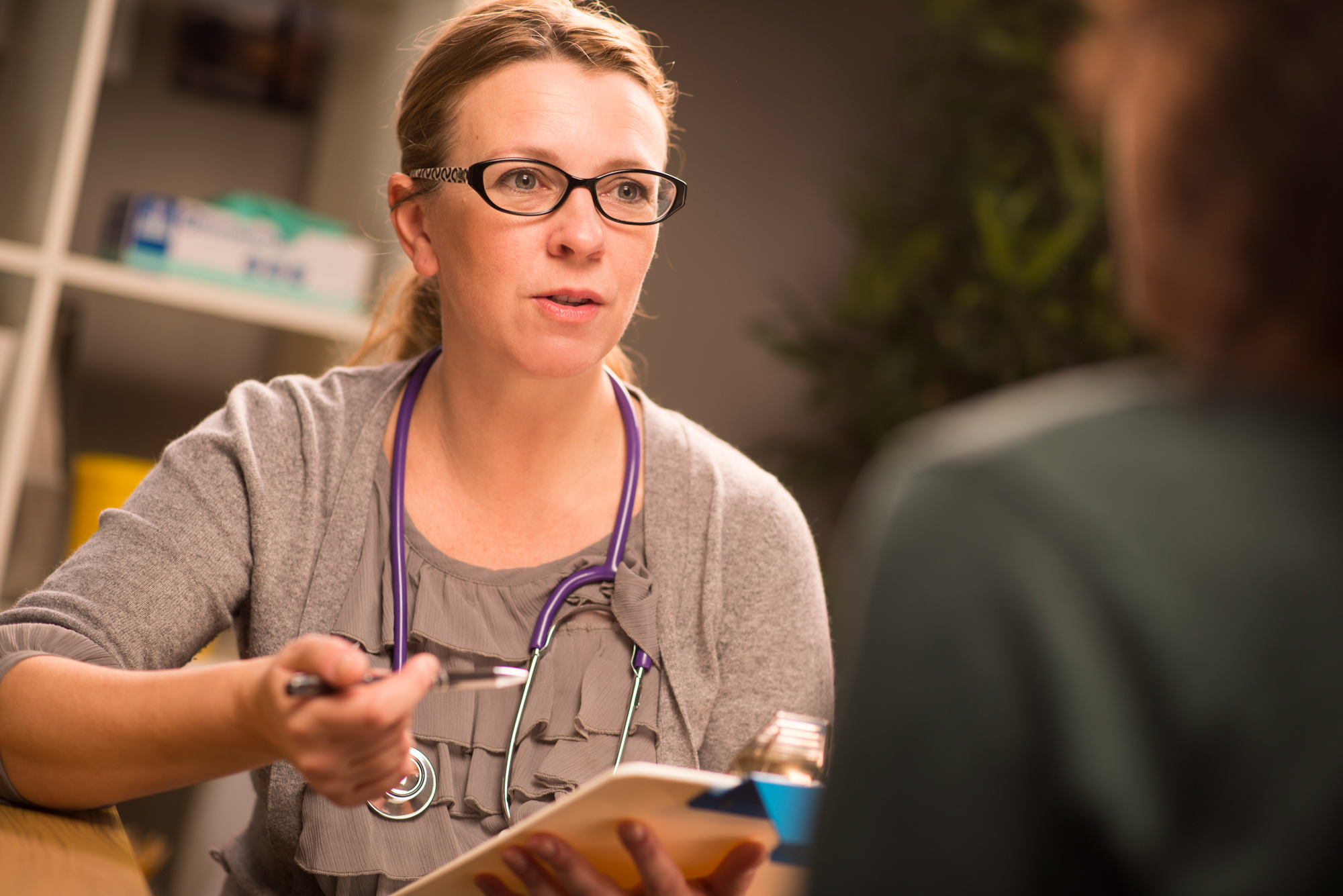
Announced: North Brisbane and Moreton Bay Medicare Mental Health Centres opening from July
Mar 27, 2025
Sept 06, 2021

If you’ve felt anxious, exhausted or overwhelmed lately, you’re not alone.
The recent pandemic has brought many challenges for us all, as we try to adjust to a ‘new normal’. No one has escaped the wrath of COVID-19, and this includes our GPs and practice staff.
General practice has certainly been affected in many ways. There’s been the challenge of supporting distressed or anxious patients and coping with increased pressure and demands at work. On top of this, many GPs and practice staff have also been juggling family responsibilities or found themselves separated from family who live interstate or overseas.
However the pandemic is affecting you, it’s important to keep a check on your mental health and reach out for support when you need it.
Dr Jennifer Schafer, Medical Director for Qld Doctors’ Health Programme (established by Doctors’ Health in Queensland), says burnout is real and common.
"Doctors and other healthcare workers are particularly vulnerable to burnout at the best of times. The COVID-19 pandemic has presented us with the worst of times - the perfect recipe for exacerbating burnout,” she said.
General practice staff are used to focussing on the health and wellbeing of others, but don’t forget that you are important too.
“Doctors generally take pride in working hard, setting very high standards for themselves in a high-stakes profession, and prioritising care for others over their own needs,” Dr Schafer said.
“The pandemic has exposed them to even greater than usual workloads, longer hours, and often no holidays. Working in healthcare is more stressful than usual, with increasing concerns and demands from patients, on a background of worry regarding the health of themselves, their families, and their businesses.
“While we are all used to a surge in caseloads over winter, this pandemic has now persisted for more than a year, and with no end in sight. Our community is frustrated by the ongoing pandemic, and it is no surprise that doctors and other healthcare workers are feeling overworked and overwhelmed as well.”
Dr Rohan Rao from Keperra Medical Centre in Brisbane says COVID-19 has caused a large amount of stress and anxiety for general practice staff.
“Our practice is running a vaccination clinic, so we have some patients who are frustrated with not being able to book appointments or have access to certain vaccines. This has caused a huge amount of angst at times, particularly for reception staff.”
In addition to the increased workloads and trying to support patients during this tough time, the physical health of general practice staff can also be in jeopardy.
“It’s inevitable that at some stage we will come across a patient who has contracted COVID-19, and some staff are quite concerned about this,” Dr Rao said.
“Some general practices are also based in shopping centres and areas where ventilation is not so good, which creates anxiety for some practice staff.
“Viability is a concern for some as general practice income is also affected by lockdowns. While telehealth has been useful, it’s not unusual to see 40-50 per cent less patients during lockdowns.
“Also, if a GP has even a minor illness, they are unable to come into work. As a GP you can’t be seen to be sick or coughing in front of your patients. This can affect the income of GPs working on a contract basis and can add additional work pressure on other staff in their absence.”
One of the challenges during these trying times is taking adequate care of our mental health. Dr Schafer says there are many and varied symptoms of burnout, including feelings of exhaustion, loss of empathy and even impairment of cognitive function.
“The consequences of burnout can range from a reduction in wellbeing, through to significant illness which may require extensive time away from work. Some doctors even leave the profession because of burnout.
“As doctors, we need to care for ourselves and our colleagues. Ignoring burnout or letting it escalate benefits no one.”
Like all illnesses, prevention and early intervention are a priority.
Dr Rao has put in place several measures at Keperra Medical Centre to create a supportive work environment and promote a workplace culture which values mental health.
“We are having more meetings as a team, which are a good platform to debrief, discuss concerns and check in with each other regularly. I also like to check in on every GP daily, to see how they are feeling.
“Reviewing our systems frequently is also helpful, as we often find ways to improve our practice and remove friction points to minimise stress.”
It’s also important for general practice staff to regularly check-in on their own mental health and play an active role in maintaining good mental health.
“If you don’t, if you try to ignore feelings of being overwhelmed or highly stressed and just soldier on, it won’t go away,” Dr Rao said.
“In fact, it will be even more heightened when there is an outbreak or a time of greater stress.
“It can also impact on the care you give. If your mental health is not right, it’s difficult to help those coming to you with mental health problems.”
Doing a regular mental health check-in can be as simple as taking note of your thoughts, sleep patterns, behaviour, and tension in your body.
For more information and a weekly check-in template, download A weekly mental health check-in fact sheet from the Black Dog Institute.
When it comes to self-care strategies, there are several techniques you can try to help ease stress and anxiety. Dr Rao has heard some great suggestions from fellow GPs in his area.
“I know one GP who makes sure he goes for a walk outside around the practice after every ten patients – no matter what happens or how busy the day is. He says he feels fresh afterwards.”
Another GP told Dr Rao he has kept his usual holiday schedule going, even during the pandemic.
“Most of us haven’t taken a lot of leave – there’s nowhere to go! However it’s important to take time off and recharge, spend time with your family, and take time away from work.”
For more quick self-help techniques to relax and unwind visit the Black Dog Institute website.
There is a range of resources and services available to GPs and practice staff to help manage anxiety and stress during this challenging time.
Doctors’ Health in Queensland
Doctors’ Health in Queensland operate a confidential 24/7 helpline (07 3833 4352) which is available for Queensland medical students and doctors, or anyone who is concerned about a medical student or doctor (e.g., family, friends, colleagues, practice staff). The advice line is manned by volunteer doctors who are experienced in doctors’ health, and who can provide advice, support and help you to access timely assistance as needed. Visit dhq.org.au for information and resources on doctors’ health, including lists of doctors and other healthcare professionals who are happy to treat doctors.
NewAccess - free coaching and support
NewAccess (developed by Beyond Blue) is a free and confidential support service for people who may be feeling down or overwhelmed and are seeking support to manage the stressors of daily life. Provided by Richmond Fellowship Qld (RFQ), NewAccess provides six free sessions with a specially trained Coach. Sessions are offered via phone or video conferencing. This service is available to all staff and the public through self-referral.
Drs4Drs – National program supporting doctors
Drs4Drs operate a confidential 24/7 helpline (1300 374 377). Drs4Drs is an independent program providing confidential support and resources to doctors and medical students across Australia. The Drs4Drs website provides coordinated access to mental health and wellbeing resources, training on becoming a doctor for doctors, community news and navigation to each state/territory helpline and referral services.
RACGP GP Support Program
The RACGP GP Support Program offers free, confidential specialist advice to help cope with professional and personal stressors impacting areas such as mental health and wellbeing, work performance and personal relationships. The service is available to all RACGP members who are registered medical practitioners.
Information, resources and tools for health professionals
Head to the National Head to Health website for information, advice and free or low-cost phone and online mental health services and supports.
The My Mental Health website also offers support for community and health professionals to connect to services in the North Brisbane and Moreton Bay region.
A collection of resources, evidence-based tools and advice for healthcare workers can also be found on the Black Dog Institute website.
Download a list of mental health training opportunities available to GPs.
Every Doctor, Every Setting: A National Framework
Improving the wellbeing of doctors and medical students is a key enabler of quality patient care and healthier communities. This National Framework is based on available evidence and advice from doctors, doctors-in-training, medical students, mental health and suicide prevention experts and other key stakeholders. Learn how to implement Every Doctor, Every Setting: A National Framework.

We acknowledge the Traditional Custodians within our region: the Jagera, Turrbal, Gubbi Gubbi, Waka Waka and the Ningy Ningy peoples of where we meet, work and learn. Brisbane North PHN is committed to reconciliation. Our vision for reconciliation is where the stories of our First Nations’ people are heard and shared, and networks are formed.